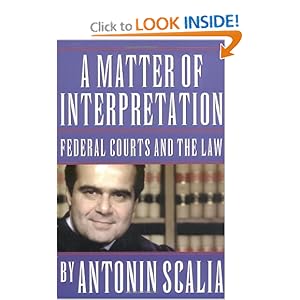
Publication Date: July 27,1998 | ISBN-10: 0,691,004,005 ISBN-13 :978-0691004006
We are all familiar with the image of a very smart judge insight into the best rule of common law in the case of the hand. This can be manipulated to achieve the ideal goal by the previous case according to the United States Supreme Court Justice Antonin Scalia – distinguish between different case, on his left, another ringing his right and left from another the a precedent To solve him from behind until he (bravo!) to achieve the goal – good law. “However, this is a common law mindset, where it is appropriate, also applies to the statutory and constitutional interpretation of it ? Wit and sharp articles, Justice Scalia responded to this question, a resounding negative.
Explore neglected art of statutory interpretation, Scalia urged judges to resist the temptation to use the legislative intent and legislative history. In his opinion, this is not in line with democratic government, allowing to be judge considers the meaning of the legislators, rather than the meaning of a decree promulgated by the legislature. Avoid judicial legislation is the essence of the common law, judges should focus on the text itself, the interpretation of statutes and regulations. Scalia then the principle of constitutional law. He suggested that we give up the concept of changing the Constitution, and note that the original meaning of the Constitution. Although not subscribe to the “strict interpretation”, to prevent under modern conditions of the Constitution, Scalia flatly rejected the idea, judge appropriate to “smuggling” in the right or the Due Process Clause of the right to reject the old, for example. In fact, such judicial discretion might lead to a breach of the Bill of Rights, if a majority of the judges of trying to achieve, most unsatisfactory.
This article is followed by the four assessment by Professor Gordon Wood, Lawrence tribal, Marian Gülen Gordon, Ronald Dworkin Ronald Dworkin, Justice Scalia idea, explained from the different positions of the judicial .

